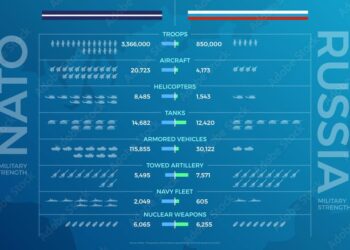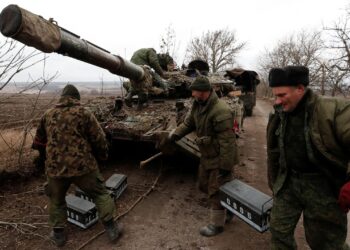South African authorities have launched an investigation into how 17 men from the country were allegedly deceived into joining mercenary forces fighting in the Russia-Ukraine conflict, according to a report by AP News. The probe aims to uncover the methods used to recruit these individuals and assess the broader implications for national security and international law. This development highlights ongoing concerns about foreign involvement in the war and the vulnerabilities exploited by recruitment networks targeting vulnerable populations.
South Africa Launches Probe Into Recruitment of Men for Russia-Ukraine Conflict
South African authorities have launched an official probe after reports emerged that seventeen men from the country were allegedly misled into joining armed groups involved in the ongoing Russia-Ukraine conflict. The investigation aims to uncover the channels through which these individuals were recruited, the promises made to them, and whether local networks facilitated their deployment under false pretenses. Preliminary findings suggest that recruitment tactics may have exploited economic vulnerabilities and misinformation, raising serious concerns about exploitation and the role of intermediaries operating within South Africa.
Officials have prioritized identifying key figures suspected of orchestrating the recruitment, while also collaborating with international partners to trace the routes taken by these men. The government has highlighted several areas of focus during the inquiry:
- Verification of recruitment agencies and their legitimacy
- Examining communication methods used to lure recruits
- Assessing the legal framework governing mercenary activity
- Providing support and repatriation options for affected individuals
| Aspect | Current Status |
|---|---|
| Number of Recruited Men | 17 confirmed |
| Investigation Phase | Ongoing evidence gathering |
| Government Response | Formal probe initiated |
| International Cooperation | Engaged with foreign agencies |
Authorities Examine Methods Used to Lure Citizens Into Mercenary Roles
South African authorities have launched a comprehensive probe into the deceptive tactics employed to recruit local men into mercenary roles within the ongoing Russia-Ukraine conflict. Initial findings suggest that recruiters exploited vulnerabilities by offering lucrative job opportunities abroad, masking the reality of military engagement under false pretenses. Victims were reportedly promised roles in logistics, construction, or security, only to be thrust into active combat zones without adequate briefing or consent.
Key recruitment techniques uncovered include:
- False advertisements presenting legitimate employment offers
- Use of intermediaries posing as government or international agency agents
- Coercive persuasion through financial incentives and threats of legal trouble
- Manipulation of social media platforms to target vulnerable demographics
| Method | Description | Impact |
|---|---|---|
| Fake Job Ads | Advertisements luring recruits with false promises of work | High initial trust, quick enlistment |
| Intermediary Agents | Impersonation of officials to legitimize offers | Increased victim susceptibility |
| Financial Incentives | Monetary rewards used as bait and control | Manipulative retention strategy |
| Social Media Targeting | Targeted ads exploiting emotional and economic conditions | Wide reach among disadvantaged groups |
Experts Call for Stronger Oversight and Support Systems to Prevent Future Exploitation
In response to the troubling case of South African men being lured into mercenary activities abroad, leading experts emphasize the urgent need for strengthened regulatory frameworks and enhanced support systems. Authorities and advocacy groups alike argue that without robust oversight, vulnerable individuals remain susceptible to deceptive recruitment tactics, often orchestrated by unscrupulous middlemen exploiting economic hardships. The call is for improved cross-border cooperation and stricter monitoring to dismantle the networks facilitating such illicit activities.
Key areas identified for immediate attention include:
- Comprehensive vetting mechanisms for recruitment agencies to ensure accountability.
- Targeted community outreach programs aimed at educating at-risk populations about the dangers of mercenary recruitment.
- Enhanced support networks encompassing legal aid, psychological counseling, and reintegration assistance for affected individuals.
| Recommended Measures | Potential Impact |
|---|---|
| National Registration of Recruiters | Reduced identity fraud and scams |
| Awareness Campaigns in Vulnerable Areas | Increased vigilance and prevention |
| Legal Support for Victims | Facilitated justice and recovery |
The Conclusion
As South African authorities continue their investigation into the circumstances that led 17 men to be recruited as mercenaries in the Russia-Ukraine conflict, questions remain about recruitment practices and the vulnerabilities exploited in the process. The case underscores the complex challenges faced by governments in preventing citizens from becoming involved in foreign conflicts. Further updates are expected as officials work to uncover the full scope of the operation and implement measures to safeguard against similar incidents in the future.















